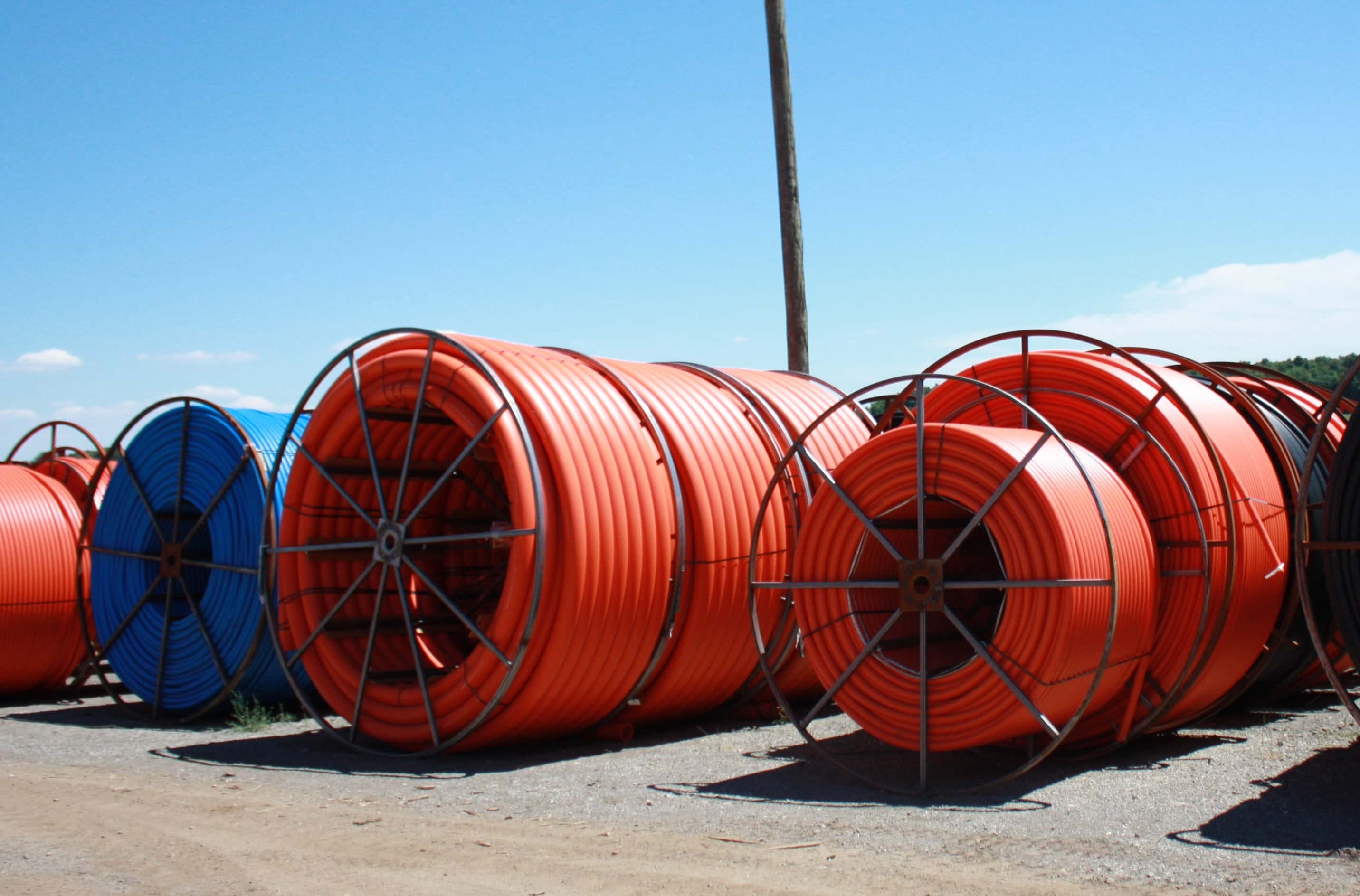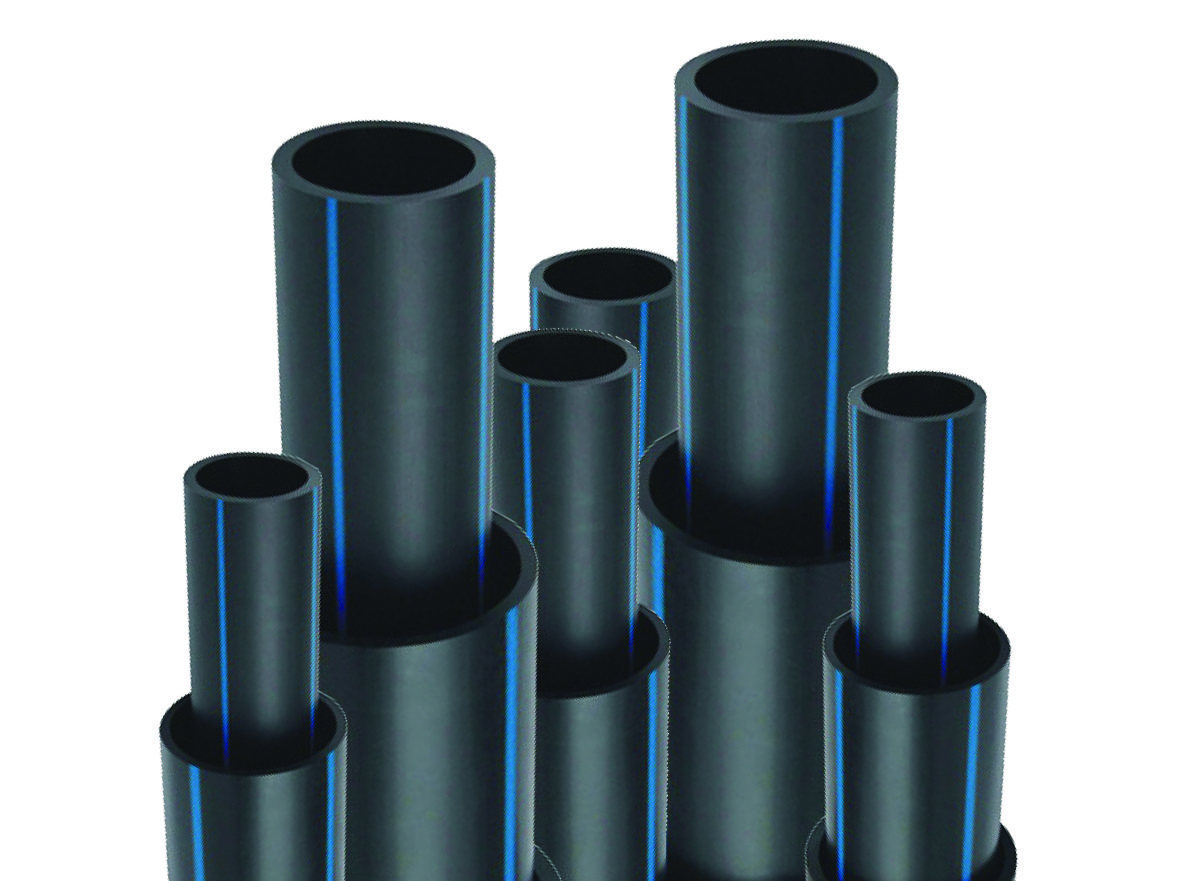A Comprehensive Overview to the Various Uses of HDPE Pipeline in Construction and Market
HDPE pipelines have actually emerged as an essential part in modern building and construction and commercial applications. Their distinct residential or commercial properties, such as resistance to deterioration and light-weight design, make them appropriate for a vast range of usages. From water systems to agricultural irrigation, HDPE pipes use solutions that improve effectiveness and sustainability. Understanding their diverse applications is essential for specialists aiming to maximize facilities. What certain advantages do these pipelines give each field?
Supply Of Water and Distribution Solutions
Supply of water and distribution systems are essential parts of urban infrastructure, often relying upon high-density polyethylene (HDPE) pipes for their sturdiness and effectiveness. These systems transport potable water from treatment facilities to customers, making certain access and safety and security. HDPE pipelines are preferred for their resistance to rust, chemicals, and extreme temperatures, which improves their durability and minimizes maintenance costs. Additionally, their lightweight nature enables easier installment and transport, making them suitable for different metropolitan and rural applications.
The adaptability of HDPE pipelines allows them to be mounted in limited spaces and around obstacles, decreasing the requirement for comprehensive excavation (Pipe Manufacturing Midland TX). Additionally, their smooth interior surface minimizes friction losses, boosting water flow prices. As cities remain to expand, the demand for trusted water systems enhances, placing HDPE pipes as a lasting service for modern-day infrastructure tasks. Their tested performance history makes them a recommended option amongst engineers and metropolitan organizers alike
Wastewater Administration and Therapy
Effective wastewater monitoring and treatment are essential for preserving public health and environmental top quality. HDPE pipes play a crucial duty in this process because of their durability, resistance to rust, and capacity to withstand extreme chemicals. These pipelines are typically utilized in numerous applications, consisting of sewer system, stormwater drain, and wastewater therapy facilities. Their lightweight nature promotes much easier installation and transportation, lowering labor costs and time.
Furthermore, HDPE pipelines have a smooth interior surface area that reduces friction loss, advertising reliable circulation prices. They are likewise less prone to leakages and failings compared to traditional materials, guaranteeing that contaminants are had effectively. In addition, their versatility enables for adaptability in numerous soil conditions, making them suitable for varied ecological settings. As industries significantly prioritize lasting methods, using HDPE pipelines in wastewater management systems straightens with goals for reducing ecological effect and enhancing source healing.
Agricultural Irrigation Solutions
In agricultural setups, reliable watering options are necessary for optimizing plant yields and taking care of water resources. HDPE (High-Density Polyethylene) pipelines play a vital duty in modern watering systems due to their longevity, flexibility, and resistance to deterioration. Their ability to stand up to high stress makes them perfect for both surface area and subsurface irrigation applications, making certain consistent water distribution throughout areas.
Farmers can utilize HDPE pipelines in drip watering systems, which deliver water directly to plant origins, minimizing waste and advertising healthy growth. Furthermore, these pipelines are lightweight and easy to set up, lowering labor prices and installation time. Their long life-span and low maintenance demands further improve their allure in agricultural techniques.
Additionally, HDPE pipelines are environmentally friendly, as they can be recycled and do not leach harmful chemicals into the soil. This makes them a sustainable choice for farmers aiming to adopt green farming approaches while making best use of efficiency.
Industrial Applications and Processes
Flexibility is a trademark of HDPE pipes, making them important in different industrial applications and processes. These pipes are extensively made use of in chemical handling sectors as a result of their excellent resistance to a variety of harsh materials. HDPE's light-weight nature, integrated with high tensile stamina, enables for easy installation and long-term efficiency popular settings.
In the oil and gas sector, HDPE pipelines play a crucial function in transporting hydrocarbons and gases, thanks to their longevity and versatility - Midland TX HDPE Pipe Fittings in Stock. Furthermore, they are used in mining operations for the transportation of slurry and other products, where standard piping systems may fall short
Moreover, HDPE pipelines are increasingly made use of in producing facilities for water lines and wastewater management. Their capacity to endure severe temperatures and stress makes them suitable for a range of industrial procedures. Overall, HDPE pipelines add significantly to performance and safety throughout diverse industrial applications.
Stormwater Monitoring and Drainage Equipments
Stormwater administration and drainage systems are critical elements in city infrastructure, developed to take care of excess rains and decrease flooding dangers. High-density polyethylene (HDPE) pipelines are increasingly used in these systems as a result of their toughness, versatility, and resistance to deterioration. These pipes effectively deliver stormwater far from populated areas, lessening surface area drainage and avoiding waterlogging.
HDPE's lightweight nature assists in less complicated setup, minimizing labor expenses and construction time. In addition, its resistance to chemicals and ecological stress factors warranties long life and dependability in various environments. Along with typical water drainage applications, HDPE pipes are also employed in ingenious remedies such as environment-friendly framework, that includes rainfall yards and absorptive sidewalks.

Frequently Asked Concerns
Just How Does HDPE Pipe Contrast to PVC Pipeline in Cost?
As a whole, HDPE pipeline has a tendency to be more expensive than PVC pipeline as a result of its enhanced toughness and flexibility. Long-term cost considerations, such as upkeep and life expectancy, may prefer HDPE in details applications.
What Is the Lifespan of HDPE Pipes Under Varying Problems?
HDPE pipelines generally have a lifespan of 50 to 100 years, depending on environmental problems, installment techniques, and use. Aspects such as temperature level, soil type, and exposure to chemicals can greatly influence their durability.
Can HDPE Pipes Be Recycled After Usage?
Yes, HDPE pipelines can be reused after usage. The recycling process involves thawing down the product, enabling it to be repurposed into brand-new items, consequently advertising sustainability and decreasing environmental influence connected with plastic waste.
Exist Any Kind Of Certain Installation Challenges With HDPE Pipelines?
Setup challenges with HDPE pipelines consist of proper jointing techniques, making certain appropriate trench conditions, and managing thermal development. In addition, skilled labor is called for to manage specific equipment, which can make complex the installation procedure in different environments.

What Accreditations Should I Seek When Investing In HDPE Pipelines?
When purchasing HDPE pipelines, one must seek certifications such as ASTM, AASHTO, and ISO, which validate quality and conformity with sector requirements, guaranteeing longevity and efficiency in different applications. - American Plastics HDPE Pipe for Oilfield